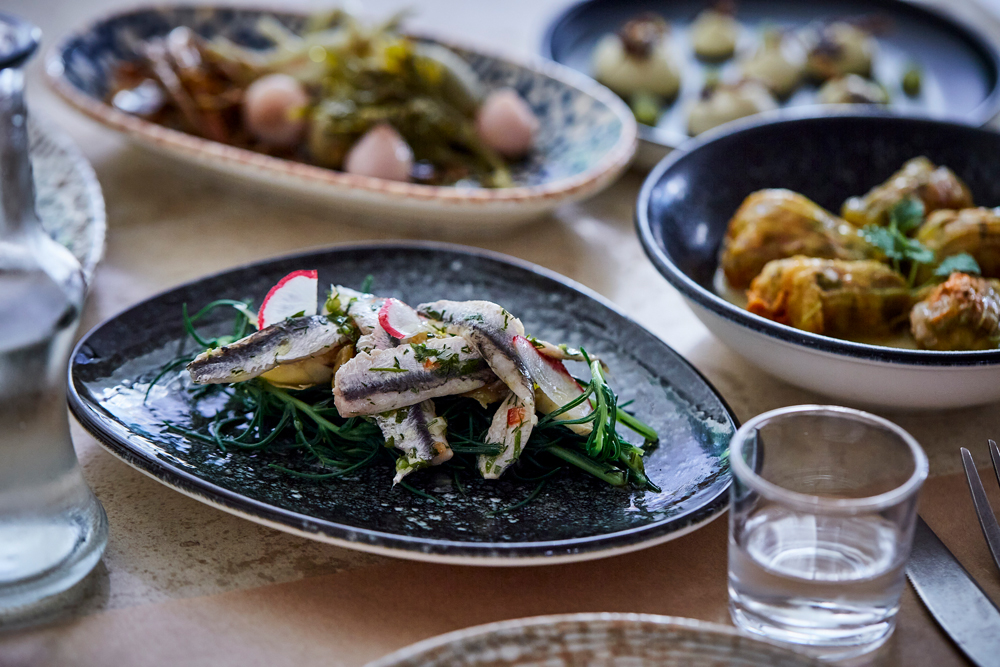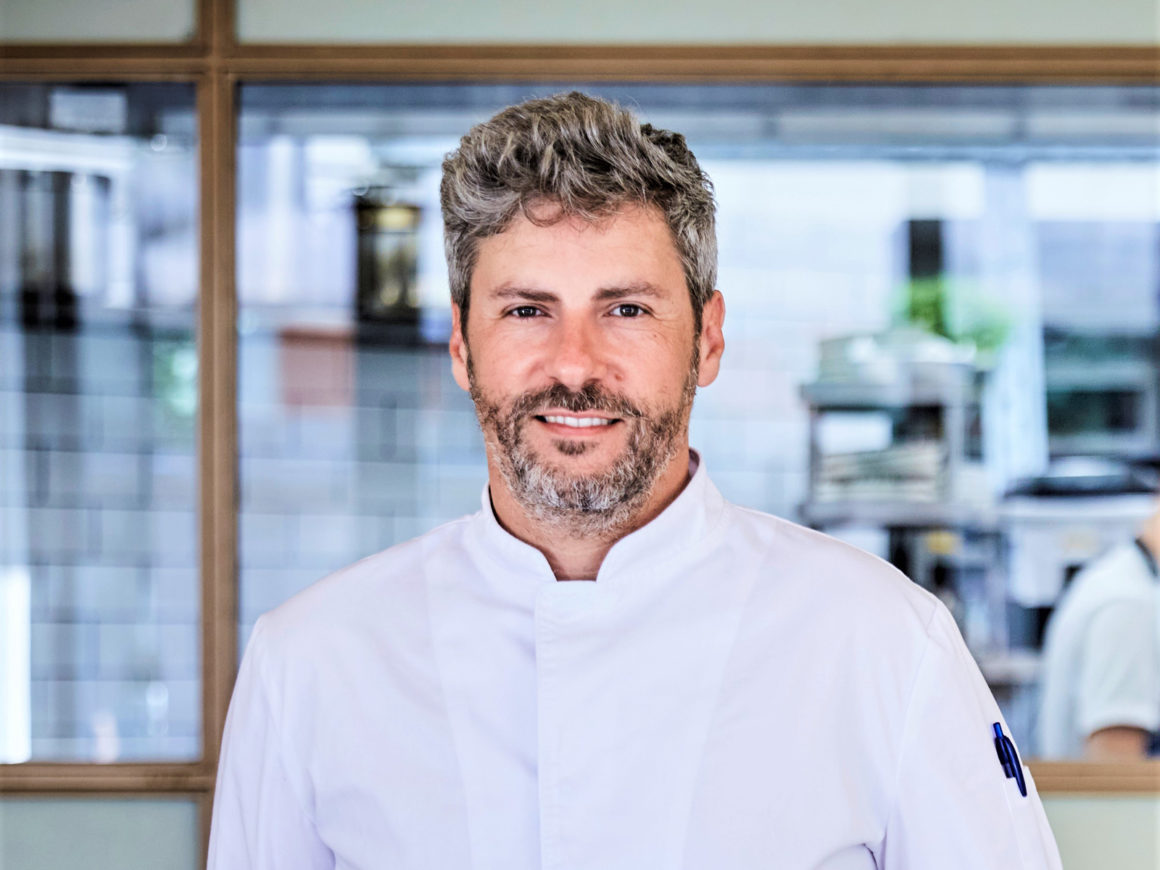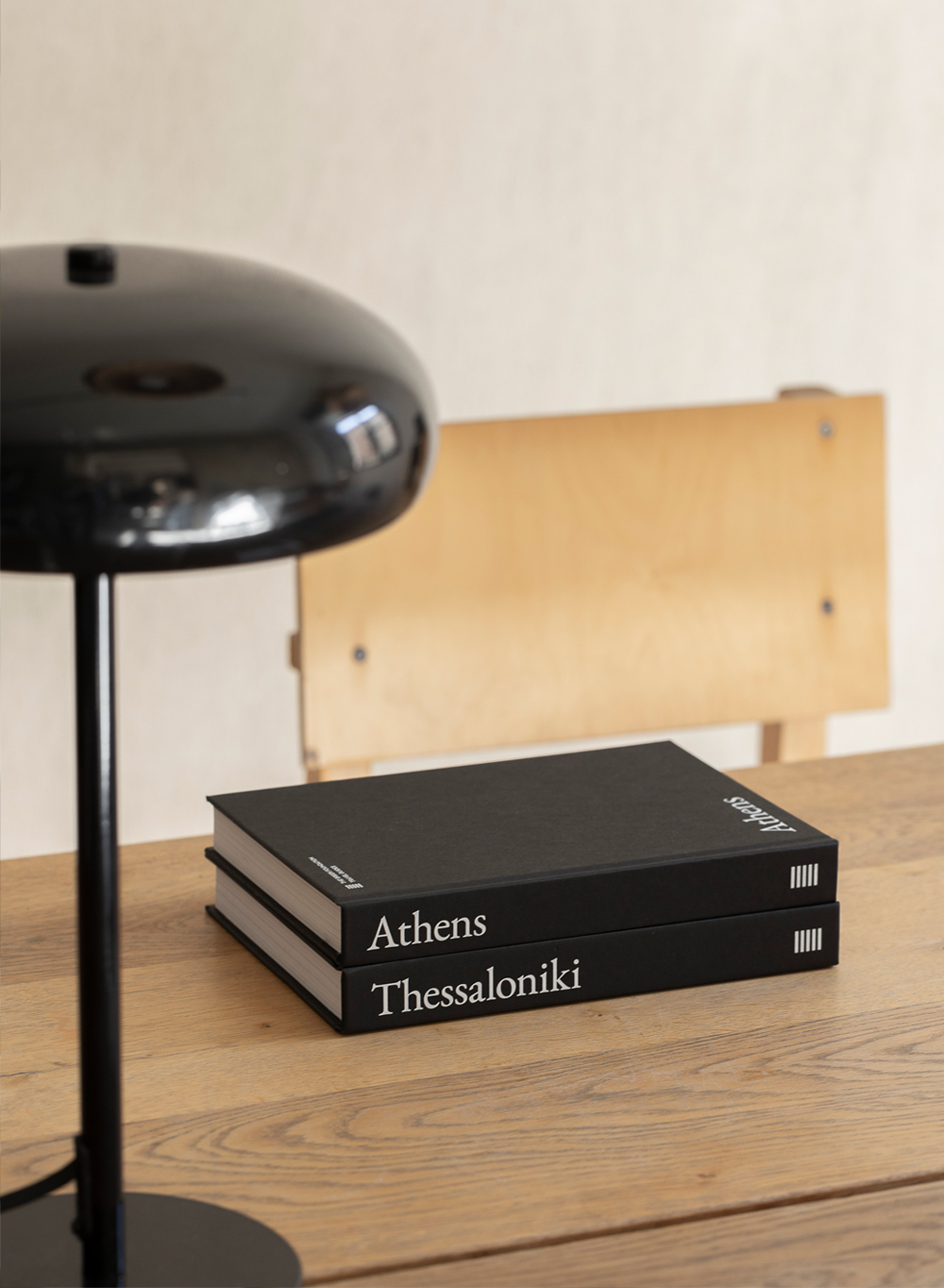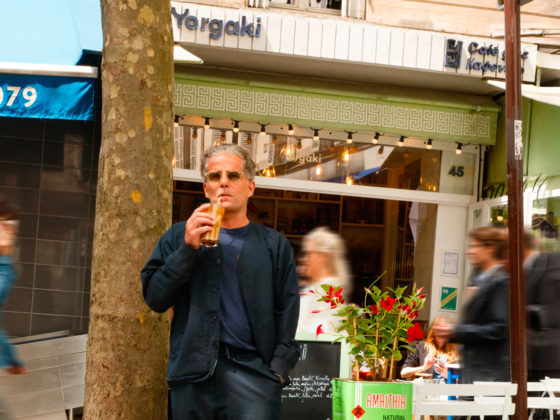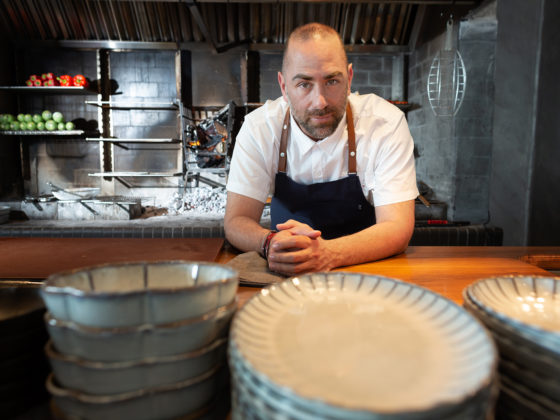Manolis Papoutsakis, a culinary maestro with roots in Crete, found his calling in the bustling city of Thessaloniki. His passion for cooking evolved into a celebrated career, marked by his success with Haroupi and Deka Trapezia in Thessaloniki, and Pharaoh in Athens. With a focus on simplicity and authenticity, Papoutsakis champions a culinary philosophy that emphasizes quality, sustainability and the deep flavors of Greek cuisine. Join us as we explore his culinary journey and the values that shape his innovative approach to Greek gastronomy.
What significance does gathering around a table hold for you? How do you think food brings people together?
Food unites. Whether at the family table, with friends, associates, or colleagues, there’s always a bonding of people around the same table. Food itself becomes the catalyst for connection and conversation. Thus, through this social process of sharing, a form of contact is expressed that is intertwined with our culture.
Can you share a pivotal moment or experience that influenced your decision to pursue cooking as a career?
I started cooking professionally out of necessity, not choice. But as I delved deeper into it and saw how interesting and creative it could be, I realized I could be happier through it. It wasn’t a moment or a particular event that pushed me into this. It was a conscious choice that developed gradually.
What does it mean to be in a kitchen? What do you find most satisfying about the process of creating something constantly?
The kitchen is filled with challenging responsibilities. For me, food is first proper nourishment and then art. But the transformation of excellent raw ingredients into a dish that evokes emotion in the consumer is something magical.
Pharaoh. What inspired you to transport the rustic charm and flavors of the village and ancestral techniques to the urban landscape of Athens?
It was exactly this incredible contrast between such a modern space and such a rustic cuisine that inspired me. Between the urban landscape and the traditional village cooking. We don’t produce culture only through identifications, but also through contrasts. And at Pharaoh, contrasts dominate. Also, my deep belief in a disregarded cuisine motivated me; I want to see it shine as it truly deserves.
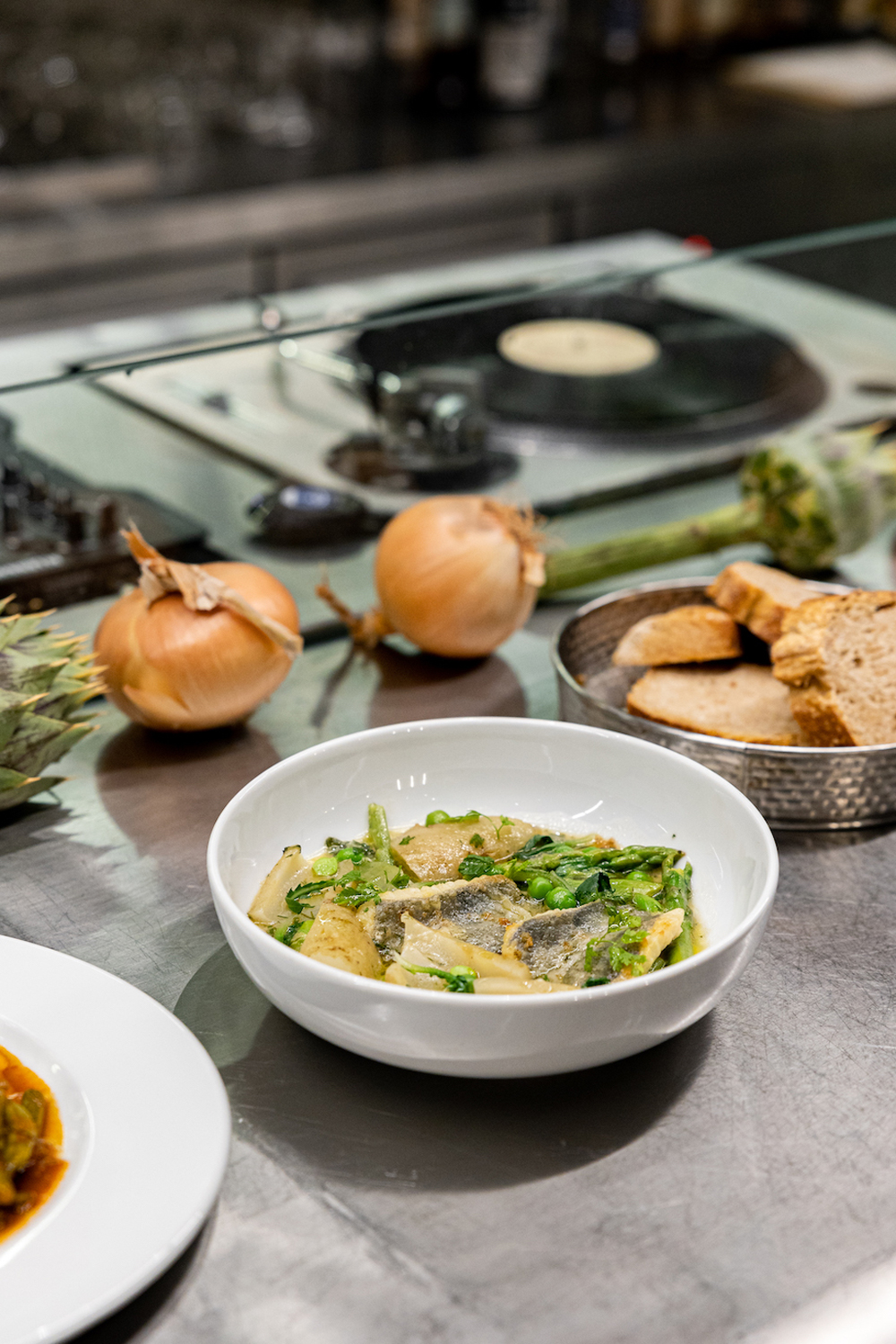
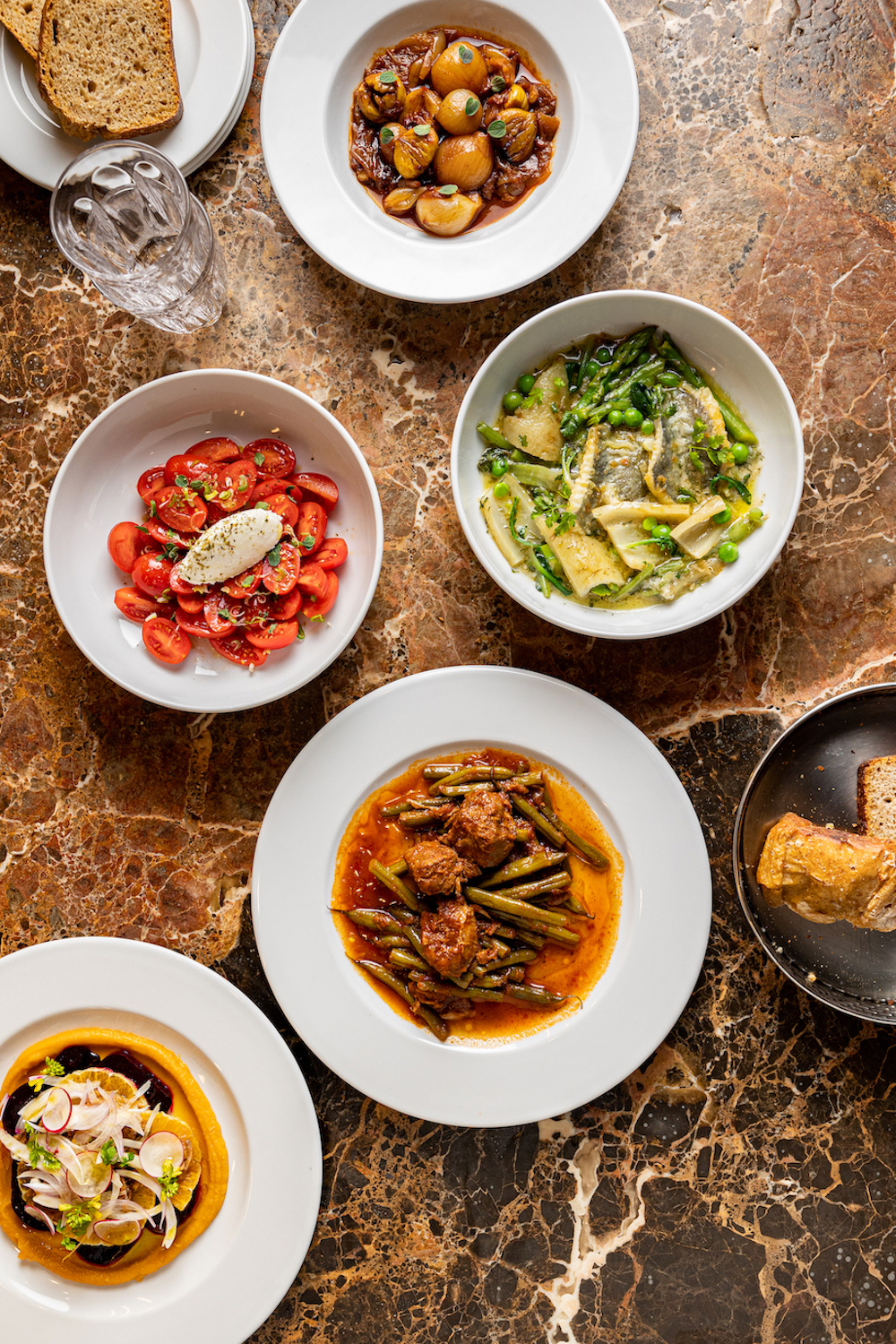
How do you source your ingredients, and how important is using locally sourced and organic produce in your dishes?
I have the right people whom I trust blindly: my grocer, my butcher, my fishmonger. I check daily what I receive, knowing its origin, seeking organic ingredients, and refusing to use rushed produce in my dishes. It’s an ethical dimension of food that is not a trend for me; it’s a crucial necessity for our overall survival. That’s why I never advertise something obvious. Writing that a zucchini is organic on my menu is absurd to me and I prefer not to advertise through something so self-evident.
What role do you believe traditional recipes and techniques play in preserving cultural heritage and identity, especially in the face of globalization and changing culinary trends?
I was never attached to tradition. But I knew that without it, it doesn’t make sense for me to cook. It’s a part of my identity even when I become more creative. But gastronomic culture is undeniably part of a place’s culture. And personally, I’m interested in our own culture. Our own cuisine.
“I enjoy everything, but I feel a moral duty to the ‘pot’ that gave birth to me, and I expect to see it shine again.”
How do you see the concept of zero waste manifesting in your culinary practices, especially in light of environmental concerns?
This revolution occurring in restaurants worldwide is crucial, yet I believe it’s largely driven by marketing rather than genuine empathy towards a world suffering from human activity. Nonetheless, I’m glad to see it unfolding, even if in this manner.
How do you perceive the evolution of Greek cuisine, and what do you believe sets contemporary Greek cuisine apart?
I’m happy with how we’ve creatively approached Greek traditional cuisine and modernized it. However, I’m unsure of its revolutionary impact unless it retains elements of Greek flavor. To me, the revolution lies in taking a bite of a dish that may not appear traditional, but upon tasting it, you can say with closed eyes that it is Greek. Achieving that goes beyond just using Greek ingredients and techniques. It requires a deep understanding of Greek flavors developed over centuries. That’s what I think is missing in many creative dishes, no matter how much they’re celebrated.
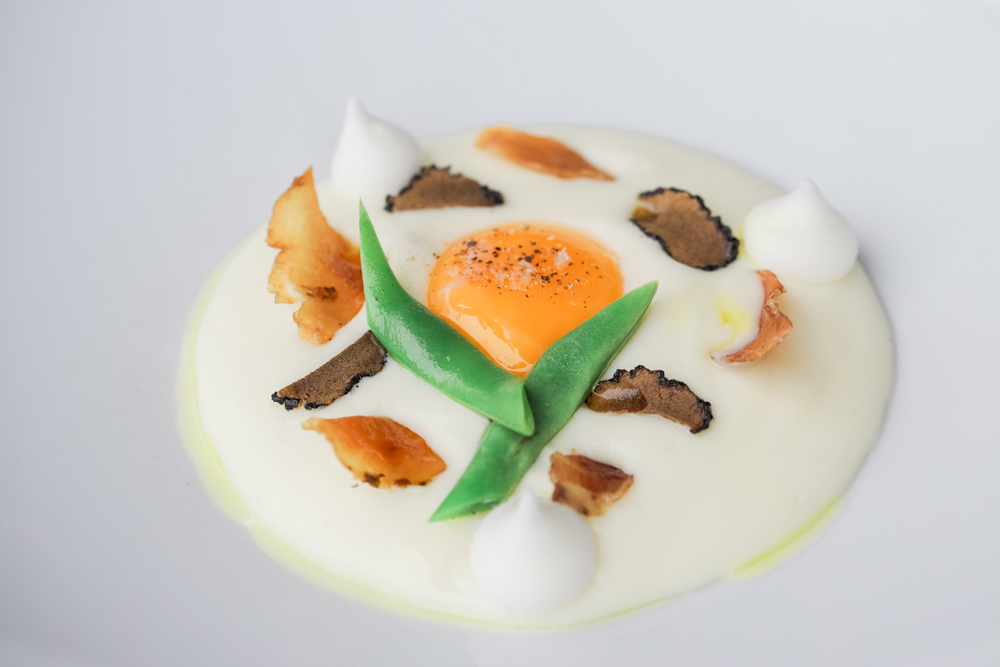
In your experience, what are some differences in the kinds of food people prefer to eat in Athens versus Thessaloniki?
Let me simplify it: In Thessaloniki, people prioritize affordable food, then tasty options, and finally, creative dishes. In Athens, creative food comes first, followed by taste, and then cost considerations. These observations sum up the gastronomic preferences of the two cities for me.
Could you share a memorable dish or ingredient that perfectly encapsulates your philosophy of good food? What makes it stand out to you?
Wild boiled greens, exceptional extra virgin olive oil, lemon juice, sea salt. This dish always keeps me grounded and helps me understand that great things come from simplicity. Personally, as I grow older, I become a more ‘Doric’ cook. I reject excess, mediocrity and confusion, opting instead for simplicity, perfection, and deliciousness. And in this dish, I find all three qualities present—as long as you know how to gather, clean, boil, and season perfectly, working with top-notch ingredients.
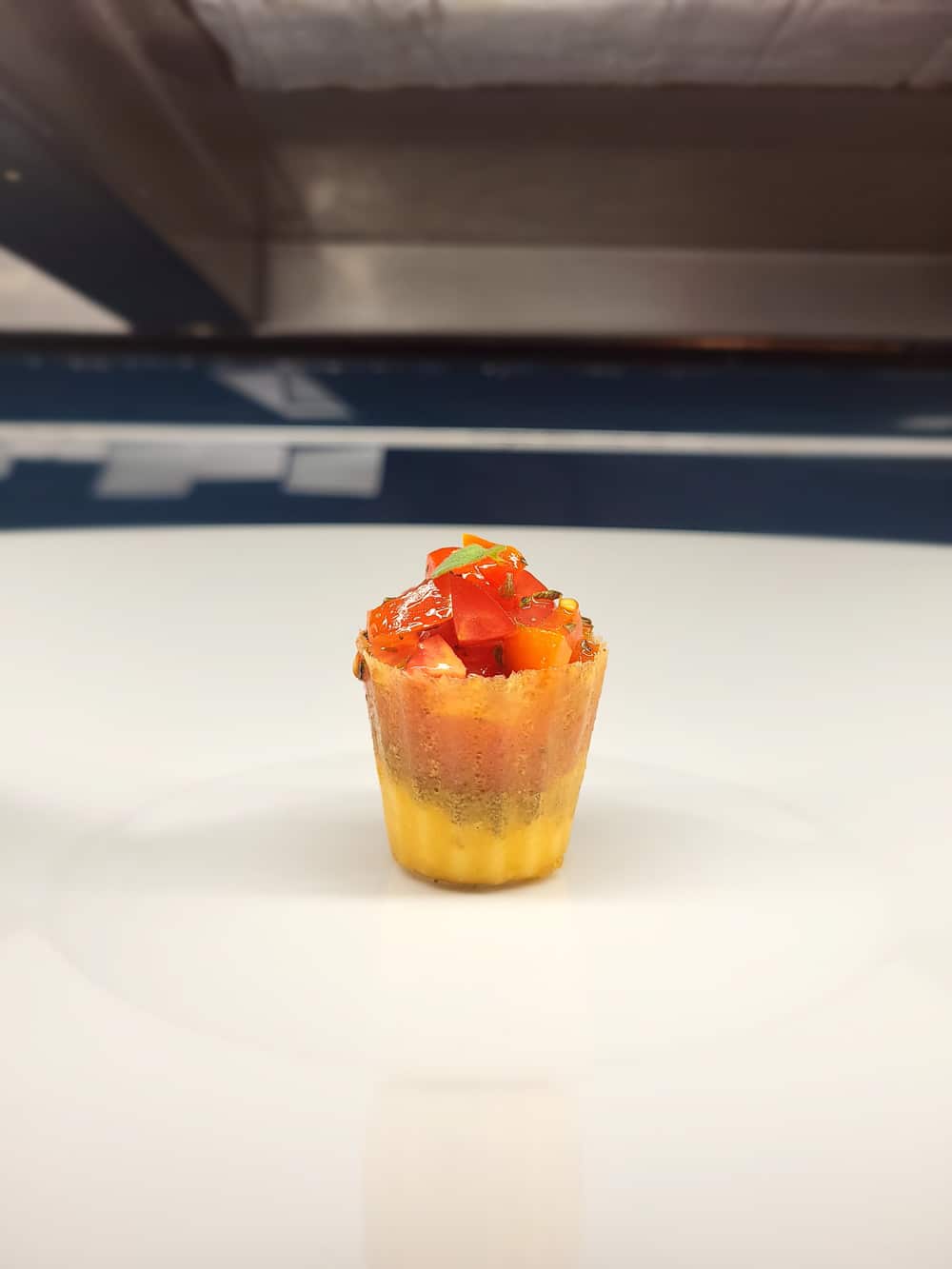
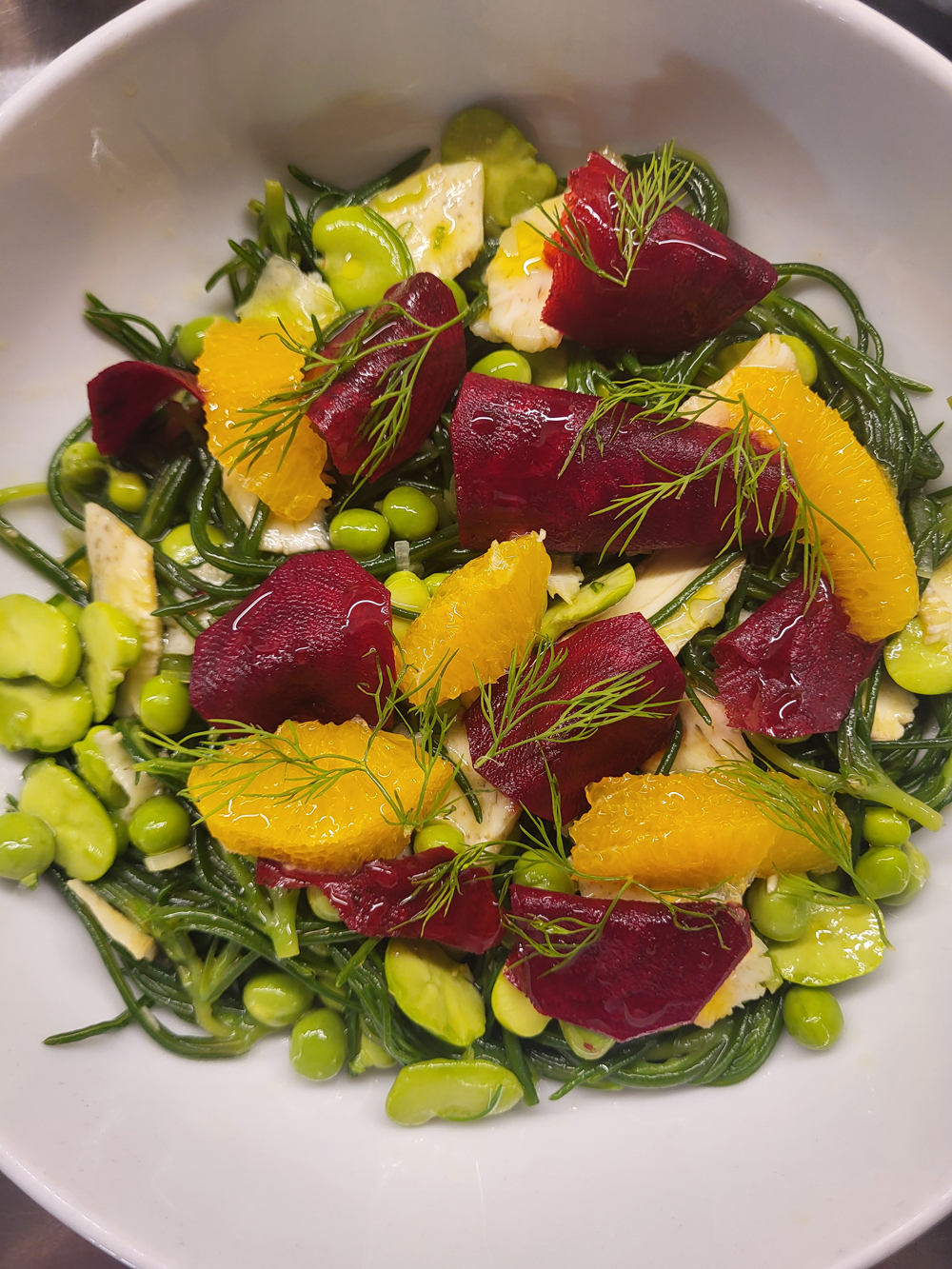
What are some innovative cooking methods and perspectives on food that you recommend exploring?
To me, the most innovative thing right now is learning from local cuisines. In Greece, there are numerous small local cuisines, each containing even smaller ones within them. This forms a treasure trove of knowledge and forgotten creativity. By exploring these, we can uncover how necessity, nature, emotion, and culture often combined to create something extraordinary that may have been lost to time.
Reflecting on your journey so far, what values or principles have remained constant throughout your culinary career?
I aim to be a genuine, modest, ethical, flavorful, aesthetically pleasing, interesting cook. I’m not interested in being the best. I’ve let go of the pursuit of perfection. Whenever someone tells me, “We had a great meal! We enjoyed it!” I feel fulfilled.
If you could take us to dine at only one place in Greece, where would it be and why?
To a traditional kafenio in Crete. Where else?
